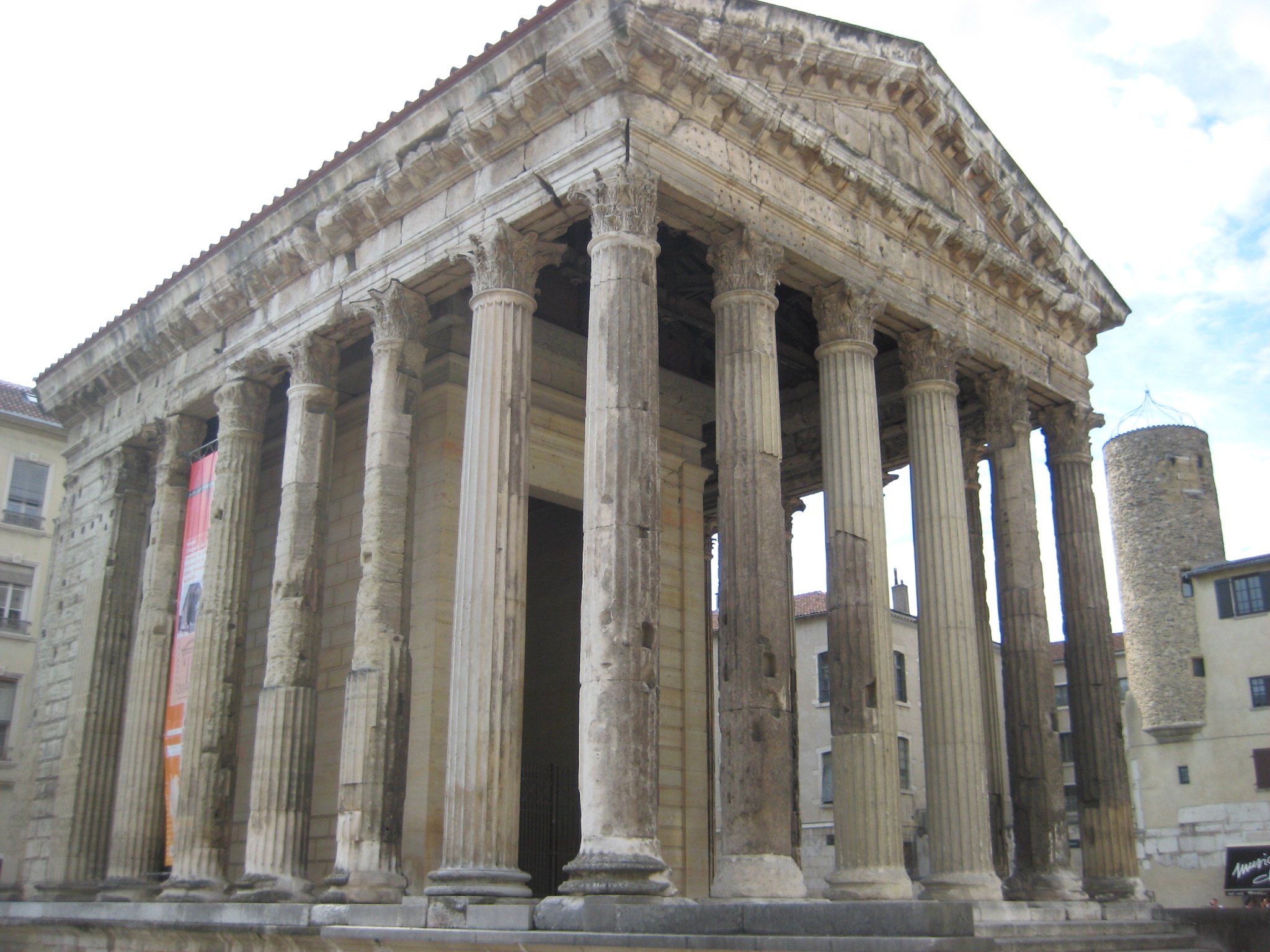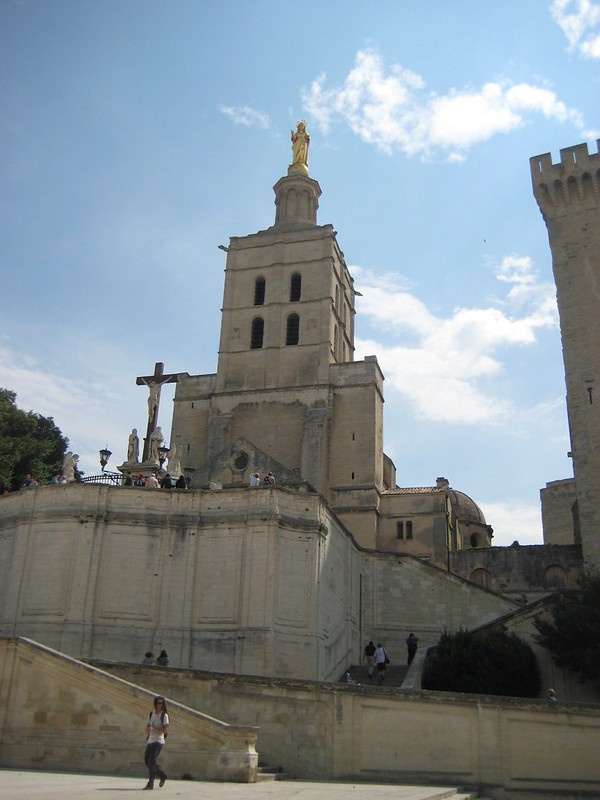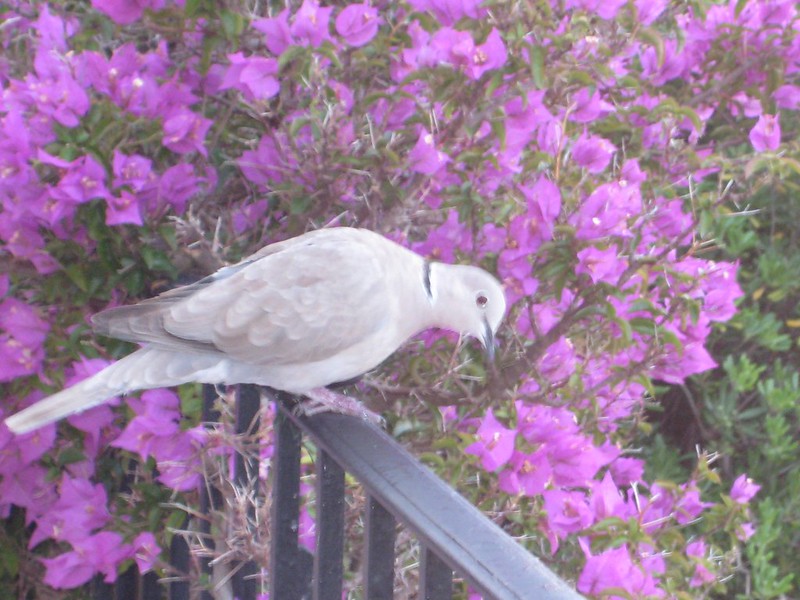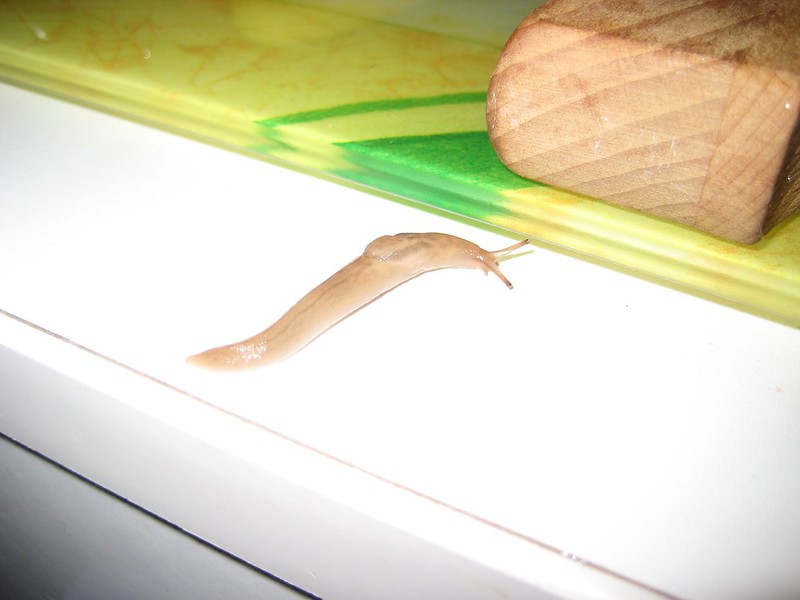**June 2010 Travel Log To Cote d'Azure, France
Jun 17, 2010 11:09:37 GMT 1
Post by Anne Terri on Jun 17, 2010 11:09:37 GMT 1
PRELUDE
''June 15, 2010 God's Living Bible – The Third Testament – Research Library – World News Updates and Travels For Research – Anne Terri and Carlo Ferdinando – Entry I
Severe, Hurricane Strength Storm, Var Region - Cote d'Azur, France (God Through Carlo Ferdinando and Anne Terri)
Rain and hurricane strength winds plummeted down on the Var Region, in South France, along the Cote d'Azure, stranding people on roofs. One of the hardest hit areas was the town of Draguignan. At the time of this writing eleven people have come swiftly to Heaven, with two still missing. The flash floods halted trains, and disrupted air travel in the region. Many still remain without electricity.
Anne asked Me, if this is still where I Wish her to travel with Carlo Ferdinando on Saturday.
Yes, this is the first time, I Will share this with you. When the hurricane like storm hit the same region several months ago, she was concerned the people had little time to prepare for the Cannes Film festival, after the major damage along the south coast of France.
Anne has been through hurricanes, not only as a civilian, but working for 911 as a dispatcher, and as a volunteer firefighter. She thinks as a rescue operations specialist. Unfortunately, she is too late to help with a rescue operation, but she will provide the needed emotional support, along with Carlo in the way of empathy, when they are there. The people will be stressed, and many places are still suffering from a major clean up from the earlier storm. As I Told her, be kind. They have lost lives this year, and are frightened.
God's Update: While traveling, Carlo and Anne noticed the hardest hit villages, such as Draguignan had been closed to traffic, which was non-essential. This is very important to the villagers to heal. The death count was at twenty five and several still missing. The camp grounds along the Artuby river were wiped out. Anne looked at the river, which was no longer swollen, and noted it looked like a tornado had felled the trees on each side. Major damage, to the land and people. A huge camper had been washed up on to the rail near one road. Prayers continue for everyone affected.
AMEN''
''June 18, 2010 God's Living Bible – The Third Testament – Research Library – Travels For Research – Travels of Anne Terri and Carlo Ferdinando
Travel Log – Cote d' Azur, France (God Through Anne Terri and Carlo Ferdinando)
Today, We left Belgium on June 18, and arrived at Our first rest stop, in Luxembourg. A beautiful morning of misty fields, and cows roaming on the country side. We see many small sparrows flying free. A beautiful site, when so many are disappearing.
After many road stops, We have arrived a little more than half way, in the ancient Roman city of Vienne. Many sites reminded Carlo Ferdinando of Rome, Italy, especially the houses in architecture.
One structure, built from the time of Jesus, is the Temple of Caesar Augustus and Livia, built in two phases, between 20-10 B.C. and then in 40 A.D.
Many churches are ancient, and unable to be explored, due to renovation.
AMEN''
 VienneTempleAugustusLiviaTwo by Anne Terri, on Flickr
VienneTempleAugustusLiviaTwo by Anne Terri, on Flickr
Anne Terri and Carlo's Research:
About Vienne, France:
Around 450 A.D., Vienne became one of the cities of the Kingdom of Burgundy. During this period, the Christian community expanded and built churches and monasteries on both banks of the Rhone River. During the 9th century, Vienne became the capital of a new Kingdom, a notable ruler of which was Boson, who was elected as the king of Provence in 879. During the 11th century, the German Emperor inherited the Kingdom of Burgundy. At that time Vienne became part of the Holy German Empire. The riches and power of Vienne's archbishops increased incessantly, with one archbishop, Guido di Bourgogne, being elected as Pope in 1119, under the name Calixtus.
Churches Under Renovation-Vienne, France
Saint-Maurice Cathedral
From 1311 to 1312 Saint Maurice Cathedral was the site of the ecumenical council which under pressure from King Philip the Fait, announced the condemnation and dissolution of the Order of Knights Templars. In 1450, Vienne became part of the Kingdom of France, following which it was gradually surpassed by its neighbour Lyon's.
Church Of Saint-Pierre
This church is one of the oldest in France, dating from the 5th to 6th century A.D. From its initial configuration, it has maintained the layout of a basilica.
Carlo Ferdinando's Research and Impressions of Vienne, France
CITIES BUILT ALONG THE RIVER
When traveling south from Bruxelles to the south of France, I was reminded of how the ancient Romans did it. By horse or by foot. We do it by car.
This journey begins at the Germanic site of Bruxelles, about at the border where the Latin - speaking world, separates from the German-speaking world. It is not for nothing that in Belgium, there is a language border, and it starts, more or less, at Waterloo, a small town south of Bruxelles, where Napoleon lost his last battle.
We crossed "Wallonie", the French speaking part of Belgium, still in the darker hours of the night; and after a short stop at the small town of Luxembourg we put some cheaper fuel into our starving little car.
Luxembourg is a German speaking country (Now they speak three languages : Luxembourg (that is a Germanic language, French and German), and we crossed the real border of France. First "La Lorraine," then we go further, more and more to the south. Our goal is" La Provence", as the Romans called it; it was Roman territory. In some places in the hills of the Provence, sometimes you can find a lost Sardinian shepherd. Lost his way while following his flock.
Traveling south along the river Rhone, across France, following the road the way the ancient Romans did.
And before getting there, we must stop to rest, like the Romans did. After having paid a lot of our precious saved coins to the bandits along the Highway called "peage", (toll booth) and paying the rest of the money to give food to our modern horses (Fuel for car), We arrived at: Vienne departement of Isere.
With the money left we found a place to get some food for ourselves, and because of the world becoming global in space and in time, we did not get any pizza (No pizza in the Roman times), but we went for a special Alsacienne restaurant, where they served us the best ever choucroute, (sour kraut) and we did drink white wine, of course, after having lessened our thirst with a good, cold Kronenburg beer; after all, we are in France.
Probably the first thing the old Gaelic people did with the waters of the river, was to transform the water into beer; later the Romans came, and the first thing they did was to plant vineyards. Along the "Cote d'or" slopes of the Rhone river, where the world's best wines are produced.
Vienne is a city just south of Lyon something like 20 miles. Now Lyon is a big city, and Vienne is only a small city on the Rhone river, but it has not always been like this. In the Gallo-Roman times, Vienne was a very important-city full of life and trade. It was conquered by Julius Caesar in 47 B.C. Latin was spoken next to the old Gaelic language, and in the summer warm evenings, soldiers and trade -men, would sit on the piazza of Cibele, or next to the temple of Augustus and Livia, drinking wine or beer according to the taste, and perhaps eating some of the fish which were fished on the river, and grilled on the spot, or some boar's meat chased in the woods. The Romans will tell about the fig trees and the olive trees that grow south and of the wonderful hills of Rome, and of the grandious games played in the Roman amphitheaters like the Colosseum or the Circus Maximus. The locals will listen and tell them stories of hunting boars and wolves in the hills. "By Toutatis" the locals shouted, while the Romans would say "By Jupiter". Some years later some people would start saying "My God".
Girls would look from the windows dreaming of the far away Roma, full of shops and festivals, not knowing that the best place was right there, at the border of the river.
Just close the eyes and times flies back, and you will hear all these stories that were being told. Just close the eyes and listen to the old voices carried by a slight breeze and mixing with the sound of the trees, also wanting to tell their stories and the singing of little birds, just asking for some food.
One more curiosity about this city, is that Herodus Archelaus, the one who is spoken of in the Gospel, was exiled by the Romans to Vienne, in the year 6 A.D. The world is so smelly sometimes.
In the morning you could go to the market and buy all the products of the place. Celery to crown your head to chase away the headache caused by too much wine, or just some nice fresh baked bread.
In a summer evening everything is possible, even that time goes back. The river reversing his flow and going up instead of down.
Bridges that were made to cross, were destroyed and then build up again, mixing the old with the new.
Later new people came to take the place of Roman soldiers; they built churches and Vienne was called the Saint city. One of the oldest churches is Saint Peter's Church.
The river Rhone keeps flowing bringing the masses of water and dreams and wishes to the south, and it doesn't care about now or yesterday or tomorrow. It brings his load of happiness and pain down south to the warm Mediterranean sea, dreaming of palm trees and of olive trees, and of sound of the waves of the warm sea, and the smell of the desert brought by the Mistral winds.
No more Roman soldier, just tourist.
Just follow the river, I thought before falling asleep. The river will bring you there.
You know, friends, I like this river ... and this small town called Vienne.
''Bringing Stories To Life (God Through Anne Terri With The Holy Spirit)
I Love when you bring a story to life, as if it were happening at the time of Jesus, or in ancient Rome. You made Vienne come to life for Anne, and now for your readers. You realize the Archelaus Herod you speak of is famous in The Holy Bible, for it is written that early in baby Jesus' life, that he reigned after his father's death. It was his father who sought to find where Jesus was born. The rest of the story is in the Infancy Gospel of Matthew 2:1-23.
AMEN''
Infancy Gospels Study Guide
''June 15, 2010 God's Living Bible – The Third Testament – Research Library – World News Updates and Travels For Research – Anne Terri and Carlo Ferdinando – Entry I
Severe, Hurricane Strength Storm, Var Region - Cote d'Azur, France (God Through Carlo Ferdinando and Anne Terri)
Rain and hurricane strength winds plummeted down on the Var Region, in South France, along the Cote d'Azure, stranding people on roofs. One of the hardest hit areas was the town of Draguignan. At the time of this writing eleven people have come swiftly to Heaven, with two still missing. The flash floods halted trains, and disrupted air travel in the region. Many still remain without electricity.
Anne asked Me, if this is still where I Wish her to travel with Carlo Ferdinando on Saturday.
Yes, this is the first time, I Will share this with you. When the hurricane like storm hit the same region several months ago, she was concerned the people had little time to prepare for the Cannes Film festival, after the major damage along the south coast of France.
Anne has been through hurricanes, not only as a civilian, but working for 911 as a dispatcher, and as a volunteer firefighter. She thinks as a rescue operations specialist. Unfortunately, she is too late to help with a rescue operation, but she will provide the needed emotional support, along with Carlo in the way of empathy, when they are there. The people will be stressed, and many places are still suffering from a major clean up from the earlier storm. As I Told her, be kind. They have lost lives this year, and are frightened.
God's Update: While traveling, Carlo and Anne noticed the hardest hit villages, such as Draguignan had been closed to traffic, which was non-essential. This is very important to the villagers to heal. The death count was at twenty five and several still missing. The camp grounds along the Artuby river were wiped out. Anne looked at the river, which was no longer swollen, and noted it looked like a tornado had felled the trees on each side. Major damage, to the land and people. A huge camper had been washed up on to the rail near one road. Prayers continue for everyone affected.
AMEN''
''June 18, 2010 God's Living Bible – The Third Testament – Research Library – Travels For Research – Travels of Anne Terri and Carlo Ferdinando
Travel Log – Cote d' Azur, France (God Through Anne Terri and Carlo Ferdinando)
Today, We left Belgium on June 18, and arrived at Our first rest stop, in Luxembourg. A beautiful morning of misty fields, and cows roaming on the country side. We see many small sparrows flying free. A beautiful site, when so many are disappearing.
After many road stops, We have arrived a little more than half way, in the ancient Roman city of Vienne. Many sites reminded Carlo Ferdinando of Rome, Italy, especially the houses in architecture.
One structure, built from the time of Jesus, is the Temple of Caesar Augustus and Livia, built in two phases, between 20-10 B.C. and then in 40 A.D.
Many churches are ancient, and unable to be explored, due to renovation.
AMEN''
 VienneTempleAugustusLiviaTwo by Anne Terri, on Flickr
VienneTempleAugustusLiviaTwo by Anne Terri, on FlickrAnne Terri and Carlo's Research:
About Vienne, France:
Around 450 A.D., Vienne became one of the cities of the Kingdom of Burgundy. During this period, the Christian community expanded and built churches and monasteries on both banks of the Rhone River. During the 9th century, Vienne became the capital of a new Kingdom, a notable ruler of which was Boson, who was elected as the king of Provence in 879. During the 11th century, the German Emperor inherited the Kingdom of Burgundy. At that time Vienne became part of the Holy German Empire. The riches and power of Vienne's archbishops increased incessantly, with one archbishop, Guido di Bourgogne, being elected as Pope in 1119, under the name Calixtus.
Churches Under Renovation-Vienne, France
Saint-Maurice Cathedral
From 1311 to 1312 Saint Maurice Cathedral was the site of the ecumenical council which under pressure from King Philip the Fait, announced the condemnation and dissolution of the Order of Knights Templars. In 1450, Vienne became part of the Kingdom of France, following which it was gradually surpassed by its neighbour Lyon's.
Church Of Saint-Pierre
This church is one of the oldest in France, dating from the 5th to 6th century A.D. From its initial configuration, it has maintained the layout of a basilica.
Carlo Ferdinando's Research and Impressions of Vienne, France
CITIES BUILT ALONG THE RIVER
When traveling south from Bruxelles to the south of France, I was reminded of how the ancient Romans did it. By horse or by foot. We do it by car.
This journey begins at the Germanic site of Bruxelles, about at the border where the Latin - speaking world, separates from the German-speaking world. It is not for nothing that in Belgium, there is a language border, and it starts, more or less, at Waterloo, a small town south of Bruxelles, where Napoleon lost his last battle.
We crossed "Wallonie", the French speaking part of Belgium, still in the darker hours of the night; and after a short stop at the small town of Luxembourg we put some cheaper fuel into our starving little car.
Luxembourg is a German speaking country (Now they speak three languages : Luxembourg (that is a Germanic language, French and German), and we crossed the real border of France. First "La Lorraine," then we go further, more and more to the south. Our goal is" La Provence", as the Romans called it; it was Roman territory. In some places in the hills of the Provence, sometimes you can find a lost Sardinian shepherd. Lost his way while following his flock.
Traveling south along the river Rhone, across France, following the road the way the ancient Romans did.
And before getting there, we must stop to rest, like the Romans did. After having paid a lot of our precious saved coins to the bandits along the Highway called "peage", (toll booth) and paying the rest of the money to give food to our modern horses (Fuel for car), We arrived at: Vienne departement of Isere.
With the money left we found a place to get some food for ourselves, and because of the world becoming global in space and in time, we did not get any pizza (No pizza in the Roman times), but we went for a special Alsacienne restaurant, where they served us the best ever choucroute, (sour kraut) and we did drink white wine, of course, after having lessened our thirst with a good, cold Kronenburg beer; after all, we are in France.
Probably the first thing the old Gaelic people did with the waters of the river, was to transform the water into beer; later the Romans came, and the first thing they did was to plant vineyards. Along the "Cote d'or" slopes of the Rhone river, where the world's best wines are produced.
Vienne is a city just south of Lyon something like 20 miles. Now Lyon is a big city, and Vienne is only a small city on the Rhone river, but it has not always been like this. In the Gallo-Roman times, Vienne was a very important-city full of life and trade. It was conquered by Julius Caesar in 47 B.C. Latin was spoken next to the old Gaelic language, and in the summer warm evenings, soldiers and trade -men, would sit on the piazza of Cibele, or next to the temple of Augustus and Livia, drinking wine or beer according to the taste, and perhaps eating some of the fish which were fished on the river, and grilled on the spot, or some boar's meat chased in the woods. The Romans will tell about the fig trees and the olive trees that grow south and of the wonderful hills of Rome, and of the grandious games played in the Roman amphitheaters like the Colosseum or the Circus Maximus. The locals will listen and tell them stories of hunting boars and wolves in the hills. "By Toutatis" the locals shouted, while the Romans would say "By Jupiter". Some years later some people would start saying "My God".
Girls would look from the windows dreaming of the far away Roma, full of shops and festivals, not knowing that the best place was right there, at the border of the river.
Just close the eyes and times flies back, and you will hear all these stories that were being told. Just close the eyes and listen to the old voices carried by a slight breeze and mixing with the sound of the trees, also wanting to tell their stories and the singing of little birds, just asking for some food.
One more curiosity about this city, is that Herodus Archelaus, the one who is spoken of in the Gospel, was exiled by the Romans to Vienne, in the year 6 A.D. The world is so smelly sometimes.
In the morning you could go to the market and buy all the products of the place. Celery to crown your head to chase away the headache caused by too much wine, or just some nice fresh baked bread.
In a summer evening everything is possible, even that time goes back. The river reversing his flow and going up instead of down.
Bridges that were made to cross, were destroyed and then build up again, mixing the old with the new.
Later new people came to take the place of Roman soldiers; they built churches and Vienne was called the Saint city. One of the oldest churches is Saint Peter's Church.
The river Rhone keeps flowing bringing the masses of water and dreams and wishes to the south, and it doesn't care about now or yesterday or tomorrow. It brings his load of happiness and pain down south to the warm Mediterranean sea, dreaming of palm trees and of olive trees, and of sound of the waves of the warm sea, and the smell of the desert brought by the Mistral winds.
No more Roman soldier, just tourist.
Just follow the river, I thought before falling asleep. The river will bring you there.
You know, friends, I like this river ... and this small town called Vienne.
''Bringing Stories To Life (God Through Anne Terri With The Holy Spirit)
I Love when you bring a story to life, as if it were happening at the time of Jesus, or in ancient Rome. You made Vienne come to life for Anne, and now for your readers. You realize the Archelaus Herod you speak of is famous in The Holy Bible, for it is written that early in baby Jesus' life, that he reigned after his father's death. It was his father who sought to find where Jesus was born. The rest of the story is in the Infancy Gospel of Matthew 2:1-23.
AMEN''
Infancy Gospels Study Guide

 ''June 19, 2010 God's Living Bible – The Third Testament – Research Library – Travels For Research – Travels of Anne Terri and Carlo Ferdinando
''June 19, 2010 God's Living Bible – The Third Testament – Research Library – Travels For Research – Travels of Anne Terri and Carlo Ferdinando
















